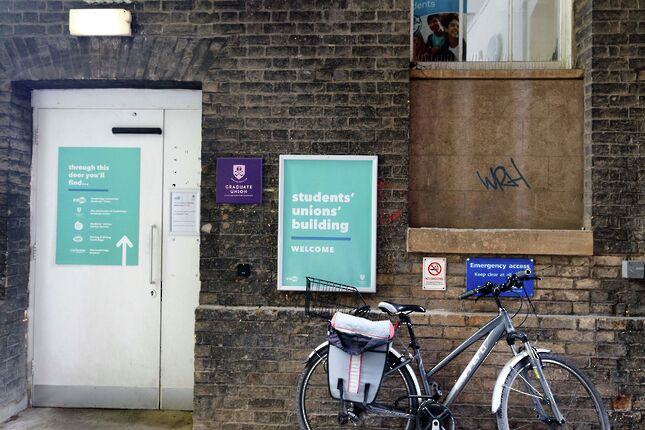CUSU 2019-20 budget predicts surplus for first time in recent years
The budget, which was passed by CUSU Council on Monday, predicts an end to CUSU’s recent financial woes

After what it has described as “a few difficult years in recent history”, CUSU has released its budget for the 2019-20 academic year, in which which it projects a £5,522 surplus.
This is the first time in recent years a CUSU budget has predicted a surplus, with the budget for 2017-18 predicting a £75,000 deficit, leading to the launching on an inquiry into CUSU’s funding crisis, although actual losses that year were only £6,836. The 2018-19 budget predicted that CUSU will make a loss of just under £3,000 this year.
The funding model for CUSU underwent significant changes in 2018/19, which the recent budget report describes as having led to a financially successful year meaning that the model will be kept in place.
In particular, CUSU’s budget has benefited from a significant increase in £80,000 a year of central funding from the University, which is its main source of income. CUSU has also benefited from moving towards a “collegiate levy” system, replacing affiliation fees for JCRs and MCRs, which will be used to run the welfare activities, primarily the Students’ Union Advice Service, of both CUSU and the Graduate Union.
In total, CUSU expects to receive an income of £802,391 in the upcoming year. To supplement the money it receives from the University, colleges and departments, CUSU relies on revenue generated through business and the services it provides for students.
The budget report notes that CUSU generates 27.5% of its own income, which is a lower percentage than that of some other Students’ Unions, due to Cambridge-specific limitations on its trading abilities, such as space restrictions, the collegiate system and low funding. These factors mean that CUSU “struggles to adopt a traditional SU funding model.”
There has been a “substantial increase” in the predicted income from the Widening Participation Project Fund, as CUSU has this year bid for funding to expand the project. If the bid is successful, the total projected income from the fund will be £51,437, with a corresponding expenditure on all Widening Participation Projects of £37,690, including £16,690 for the Shadowing Scheme and £20,000 for CamSpire.
The budget also breaks down its predicted £796,869 in overall expenditure, a figure roughly similar to the prior year’s.
Projected expenditure for CUSU Campaigns has increased this year from £8500, split between five liberation campaigns with an additional £400 for the Ethical Affairs part-time executive last year, to a total of £11,200 to be divided between seven such campaigns in 2019/20.
This year saw an increased number of liberation campaigns as a result of Class Act becoming a CUSU liberation campaign and the Ethical Affairs becoming a campaign as a result of the recent democracy review. The CUSU Executive will convene to decide how these funds are to be distributed between these recipients.
CUSU also expects to pay £9,159 in NUS affiliation fees over the next year. The report points out, however, that NUS is in the midst of a ‘turnaround’ period, given the current financial difficulties it is experiencing and, as a result, there is potential for changes to be made to the affiliation fee model. Such alterations will be agreed upon at the National Conference in April and, if needed, subsequently be brought before CUSU Council.
The budget is set by the Finance subcommittee of CUSU’s Board of Trustees and ratified by both the Board and CUSU Council. A specialised University committee receives reports on the Union’s accounts four times a year, as part of a wider system which the report describes as working to ensure that “[CUSU’s] finances do not prevent it from achieving its charitable objectives of supporting and representing students.”
 News / Colleges charge different rents for the same Castle Street accommodation2 March 2026
News / Colleges charge different rents for the same Castle Street accommodation2 March 2026 News / News in Brief: waterworks, wine woes, and workplace wins 1 March 2026
News / News in Brief: waterworks, wine woes, and workplace wins 1 March 2026 News / Climate activists protest for ‘ethical careers policy’1 March 2026
News / Climate activists protest for ‘ethical careers policy’1 March 2026 News / Angela Merkel among Cambridge honorary degree nominees27 February 2026
News / Angela Merkel among Cambridge honorary degree nominees27 February 2026 News / Private school teacher who lied about Cambridge degree barred from teaching27 February 2026
News / Private school teacher who lied about Cambridge degree barred from teaching27 February 2026









